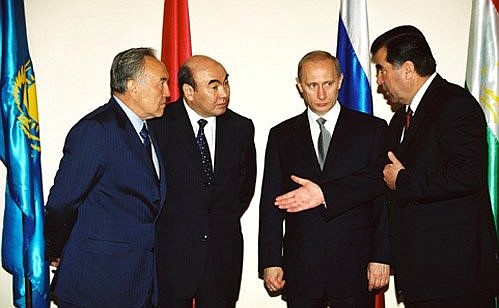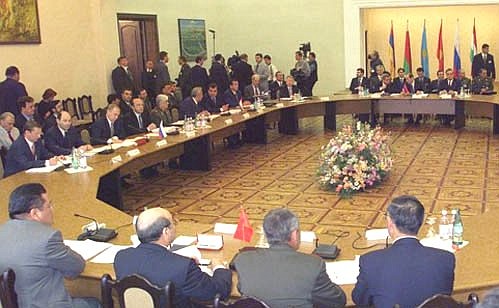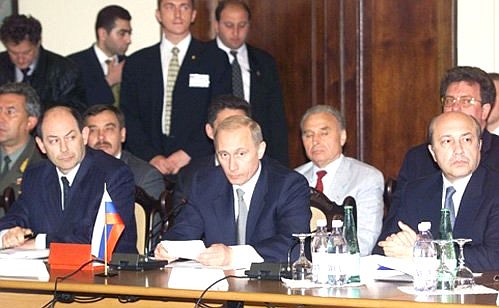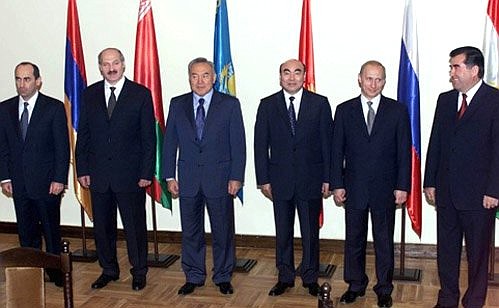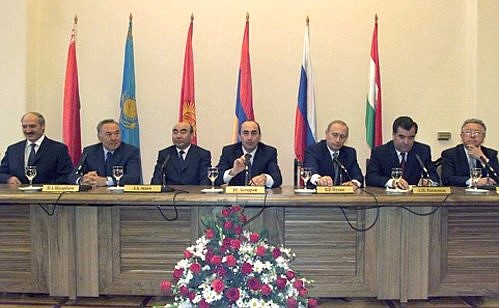The meeting opened with a gathering of the Russian, Armenian, Belarusian, Kazakh, Kyrgyz and Tajik presidents. The Security Council secretaries and foreign and defence ministers of the six Collective Security Treaty signatory countries joined them later.
The participants discussed guarantees of global and regional security, and the establishment of joint rapid deployment forces in Central Asia.
The meeting was summarised in a number of signed documents, in particular, a statement of the heads of state of the Collective Security Treaty Organisation member countries.
The statement stressed the necessity of joint resistance to international terrorism and extremism. The parties expressed their determination to promote the establishment of a just and democratic multi-polar world order based on compliance with the United Nations Charter and international legal norms.
The heads of state confirmed their dedication to the cause of strengthening international security and strategic stability on the basis of the available treaties and agreements on arms reduction and limitation.
The national leaders expressed major concern about the new challenges to global and regional security—above all, about the mounting danger of international terrorism and extremism, which was acquiring an expressed and co-ordinated trans-border character.
In that connection, the statement said that terrorism and extremism were going hand-in-hand with organised crime and drug and arms trafficking to impede democratic development as they were encroaching on basic human rights and freedoms. The document stressed that terrorist and extremist groups in various countries and regions were pursuing far-reaching goals, including illegal seizure of power. To get their ends, they were out to destabilise the situation as much as possible without stopping at bloodshed and mass killings.
The leaders of the Collective Security Treaty Organisation member countries addressed a joint news conference after the meeting.
